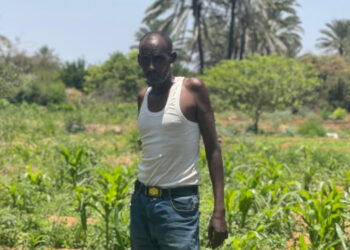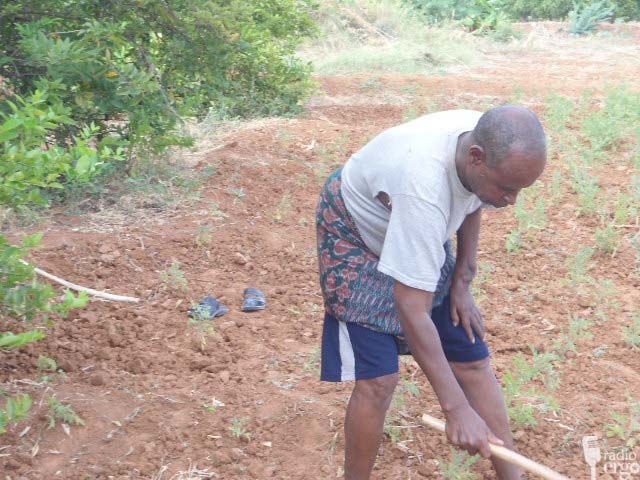(ERGO) – Women selling vegetables in the southern Somali town of Bardera are complaining about poor sales after local farmers raised the prices of their fresh produce, putting them out of reach for ordinary consumers.
Asha Abdi Ali, a mother of eight, told Radio Ergo that three of her children dropped out of school in August as she has been unable to earn enough from her vegetable stall to pay their fees.
“Previously when I was getting a steady income, I would give the teachers the fees. The teachers also need income and they have to pay for water and other costs, that’s why my children were kicked out. I was paying $7 for each child and now I don’t even have that money,” she said.
Asha has a small table in Bardera market selling tomatoes, onions, potatoes and other green vegetables. She buys the produce at wholesale prices from the farmers and tries to sell at a profit.
She used to buy a bucket of tomatoes at 70,000 shillings ($1.6) but the price has doubled to 140,000 shillings. Most fresh produce has gone up as local farmers point to the rise in fuel prices that they have incurred.
“We used to eat three meals, but now we get one meal a day. We don’t cook breakfast at all, we eat whatever was left from dinner. The rise in prices has had a big impact on us. The children are out of school, but they still need everything they were getting including clothes,” she said.
Asha, 38, used to earn $15 a day from her vegetable and fruit sale. That has dropped steeply to $1.5 a day. She has taken loans to feed her family. She also owes money to some farmers who gave her vegetables on credit. She is worried about how she will settle her debts.
Local farmers say a barrel of fuel shot up from $130 to $250-300 and they have had to pass on the extra costs to vegetable sellers.
Muhidin Sharif Mayow, 48, a farmer with two hectares of farmland in Bardera, told Radio Ergo that the rise in fuel prices has taken a toll on their production.
Muhidin, a father of 12, has debts of 23 million Somali shillings ($852) that he took to buy fuel, seeds and fertiliser for his farm. He has not been able to sell enough produce to recover the costs.
“The issue was caused by the rise in fuel price. My wife is also out working to make an income since my income has reduced. We are giving up on the farm due to the high prices – the tomatoes and onions are just rotting. We would normally make an income from the vegetables but now everything is expensive,” he said.
His family has also taken loans from local food shops to support their basic needs, and he has outstanding debts with owners of the stores where he keeps his farm produce. Other farmers in the area are similarly struggling.
Meanwhile, 45 IDP women who turned to selling fresh vegetables in the markets in Bardera are also being affected by poor sales.
Rahma Mohamed Abdullahi migrated from Ufurow, Bay region, in 2020 after her 100 goats died in the drought.
The price rises that she is passing on to customers at her stall mean that few people want to buy her vegetables. She cannot earn enough to support her nine children.
“I couldn’t continue paying for their school fees so now they only take Koranic lessons. There is no other source of income for us, it’s me who earns a living for my children,” she explained.
Rahma used to earn between 100,000-50,000 shillings ($3.7-1.9) a day although her income now has reduced to 20,000 shillings, which is less than one dollar. She said she has taken loans worth three million shillings to keep the family going and does not know how she can repay the debts.










